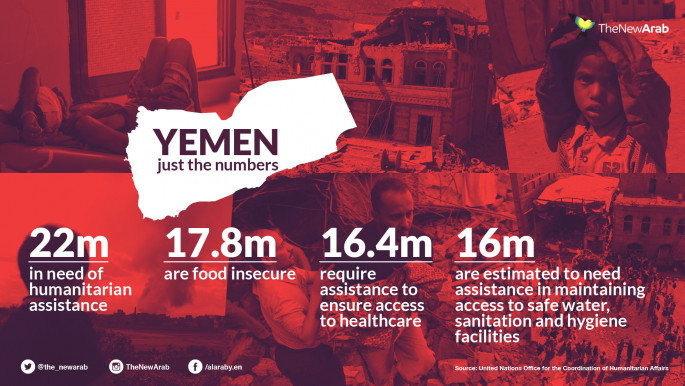Saudi-led coalition 'covering up' war crimes in Yemen
The vast majority of JIAT's public conclusions about accusations of war crimes found the coalition acted lawfully, did not carry out the reported attack, or made an "unintentional" mistake, HRW said.
As of 31 July, 2018, JIAT has only recommended pursuing further investigations into two of around 75 public reports.
Western arms sales complicit in war crimes
Since 2015, Saudi Arabia has been leading a military campaign to restore the internationally recognised government to power and push back the Houthis, who still hold the capital Sanaa.
The conflict has killed more than 10,000 people since then, the vast majority of them civilians, and caused the world's worst humanitarian crisis, according to the United Nations
The coalition has been repeatedly blamed for bombing civilians, including a strike on a wedding hall in the Red Sea coastal town of Mokha in September 2015, in which 131 people died.
JIAT concluded that the wedding hall was "partly affected by unintentional bombing", despite being repeatedly targeted.
In October 2016, a coalition airstrike killed 140 people at a funeral in the rebel-held capital Sanaa.
In the most recent incident, forty children were among 51 people killed in a Saudi-led coalition airstrike on a bus in rebel-held northern Yemen in August.
According to a CNN report, the bomb used in the deadly attack was supplied by the United States under a State Department deal with Riyadh.
In seven attacks JIAT investigated, Human Rights Watch identified US-produced weapons at the site.
"The coalition's continuing unlawful airstrikes and failure to adequately investigate alleged violations puts weapons' suppliers to the coalition – including the United States, the United Kingdom, and France – at risk of complicity in future unlawful attacks," HRW said.
HRW has called on coalition member countries to investigate alleged violations and appropriately prosecute people responsible for war crimes, including Saudi and Emirati commanders, whose countries play key roles in coalition military operations.
The UN Security Council should consider sanctions on senior coalition commanders who share responsibility for repeated violations.
"The failure of the coalition's investigative body to carry out credible inquiries and take appropriate action reinforces the urgency for UN Human Rights Council members to renew and strengthen the UN inquiry into violations by all parties in Yemen," Whitson said.
 |
|



